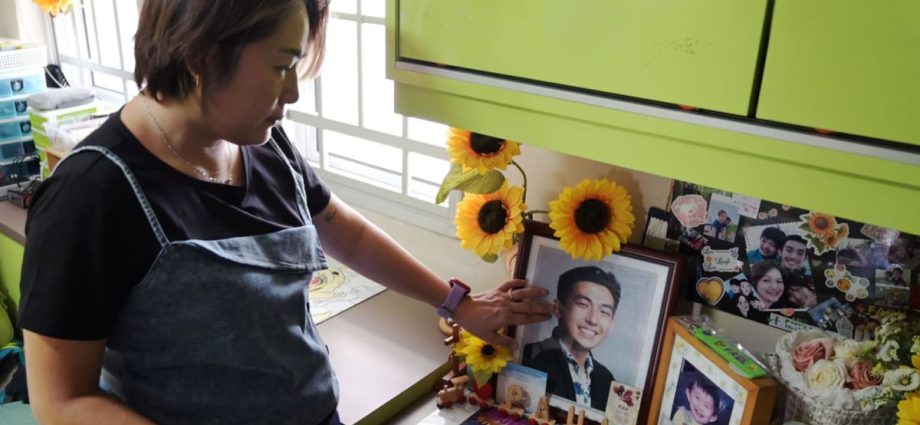
“When I saw the article, I took a few deep breaths to read all the reports because I really feel that it is very sad, and it’s very alarming that we lose lives this way. And of course, it does bring me back to my son’s passing,” said Alicia.
PAUL’S STORY
An extrovert who always wanted to help others, Paul had ambitions to be a social worker and studied to be a nurse.
But the stress of the course meant he changed his plans and moved into studying drama at the Nanyang Academy of Fine Arts (NAFA), where he graduated with a diploma.
The eldest of three children, Paul was always attentive to his sister and brother.
“He will bring them out for meals, like sibling bonding. As a kor kor (older brother), he was very caring towards his two siblings,” explained Alicia.
He was especially close to his younger sister, who has mild autism. From primary school, he started taking a more “hands-on” approach towards caring for her.
In 2019, Paul started staying away from home, straining his relationship with his mother.
He started having bowel issues and had asked his mother for sleeping supplements. She did not think much of it and thought he had sleep issues because he was up playing games.
During the first suicide attempt, he reached out to a friend, who contacted the police. His family was notified, and they started counselling.
In 2020, when COVID-19 hit and the two-month “circuit breaker” – where residents could only leave home for essential activities – was implemented, Paul struggled with staying at home. Tensions rose, and when the circuit breaker was over, the young man again attempted to take his own life.
He was admitted to the Institute of Mental Health and started working with a counsellor. Again, things started to look up.
“After his second attempt, I saw a change in his character, I saw a change in his attitude towards life. And I thought that he knew what he was doing, and what he shouldn’t do,” recalled Alicia.

